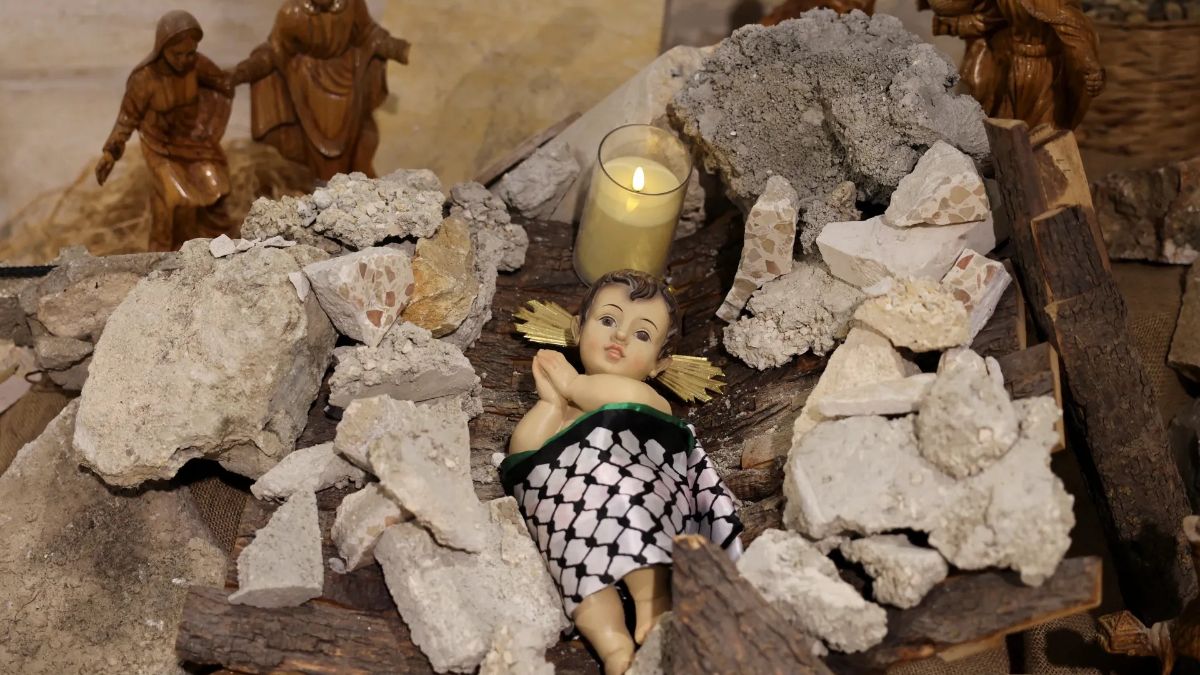Lavish For Whom?
"Give me the head of John the Baptist here on a platter."
Matthew 14:18
August 1, 2014, Words By: Scott Dewey, Image By: Moveable Feast by Charles Roper (CC BY 2.0)
He ordered the crowds to sit down on the grass. Taking the five loaves and the two fish, he looked up to heaven, and blessed and broke the loaves, and gave them to the disciples, and the disciples gave them to the crowds. And all ate and were filled; and they took up what was left over of the broken pieces, twelve baskets full.
–Matthew 14:19-20
The fourteenth chapter of Matthew’s gospel tells of two lavish feasts, back to back. The juxtaposition is startling – clearly arranged by the narrator in vivid contrast.
The first feast takes place in a likely setting for extravagance – amid wealth and power. Herod Antipas, a Roman surrogate “King of the Jews,” was known for a level of royal excess only perhaps surpassed by that of his father Herod the Great (mentioned at Jesus’ infancy). What Herod Antipas desired, he typically got. Not in line for the throne? An execution or two fixed that. Upgrade on a wife? Out with the old, in with the young. New palace? Sure, and a new city to put it in.
We can only imagine what a birthday party for such a man might entail. Most of it is left to our imagination, except for a few lurid details we are not spared here. Seems Herod had a fondness for young skin and became particularly enthused with his stepdaughter’s dance performance for the occasion. Probably well lubricated by that point, a gleeful Antipas makes a wild oath to grant the girl any wish. Prompted by the queen, the girl asks for the macabre appetizer of John the Baptist’s severed head. Why not? Past a certain point in the night, anything goes.
Almost anything, apparently. Even Herod has to stifle a gag reflex at this proposition. There is a backstory. In Jewish prophetic tradition, John has been the moral conscience of his people – publicly opposing the king’s new marriage arrangement. Prison fixed the “public” part. Ruthless as he was, Herod wasn’t ready for the death penalty for his critic – out of sight and earshot was enough.
On this night, however, no extravagance was too much. To save face in front of guests (rather than, surely, to maintain any integrity of his word), he ordered the gruesome platter to be served.
“When Jesus heard this, he withdrew from there in a boat to a deserted place by himself.” It wasn’t deserted for long. Any mournful reflection and action would have to be done in the company of five or ten thousand of his closest friends and followers. Jesus might have preferred a fast, but would soon host a feast. And what a feast it became! The story is familiar, starting with five loaves and two fish and ending with baskets of leftovers.
Less familiar, and worth pondering, is the contrast in the extravagance of the two feasts. For starters…
Motive: Narcissism – Compassion
Venue: Personal palace for royal hubris – Springtime grassland, natural beauty for the refreshment of all
Invitation: Exclusive to royal guests – Welcome to all
Serves: Lusts of the host – Nourishment of guests
Empowers: One wealthy family in depraved, fearful way – All participants and families, especially servers and especially the poor
Leftovers: Revolting, useless, limited – Savory, abundant, available
Outcome: Violence – Shalom
I would invite you to think of more comparisons and contrasts, and to reflect on the two stories on a number of levels – particularly the level of public life and leadership.
Many of us are accustomed to reading the Bible with privatized application to our personal spiritual lives, which is vital. But I would like to ask an equally vital question here: What do these two stories say about urban public policy? There is lavish abundance in all of our communities. But lavish for whom?
To the extent we exercise our public leadership opportunities and responsibilities, how do we best foster a life-giving mix of:
Urban spaces: Private vs. publicly shared
Recreation and celebration, festivals: Privately vs. publicly enjoyed
Economic opportunity: Pathways for a few vs. many
Basic resources: Health care, education, nutrition, legal representation, public safety, communication systems, transportation – for people across ALL economic and social lines
Differing political and social ideologies will certainly suggest very different approaches to these ends. We should welcome the dialogue; complex urban realities defy single-ingredient recipes. While it would be a misuse of scripture to find ready-made “answers” for the challenges of our cities in its pages, gospel narratives such as these two lavish feasts can frame contours of the conversation for those of us who desire to follow Jesus in both a private and public way.
Peace,
Scott Dewey
The Street Psalms Community



